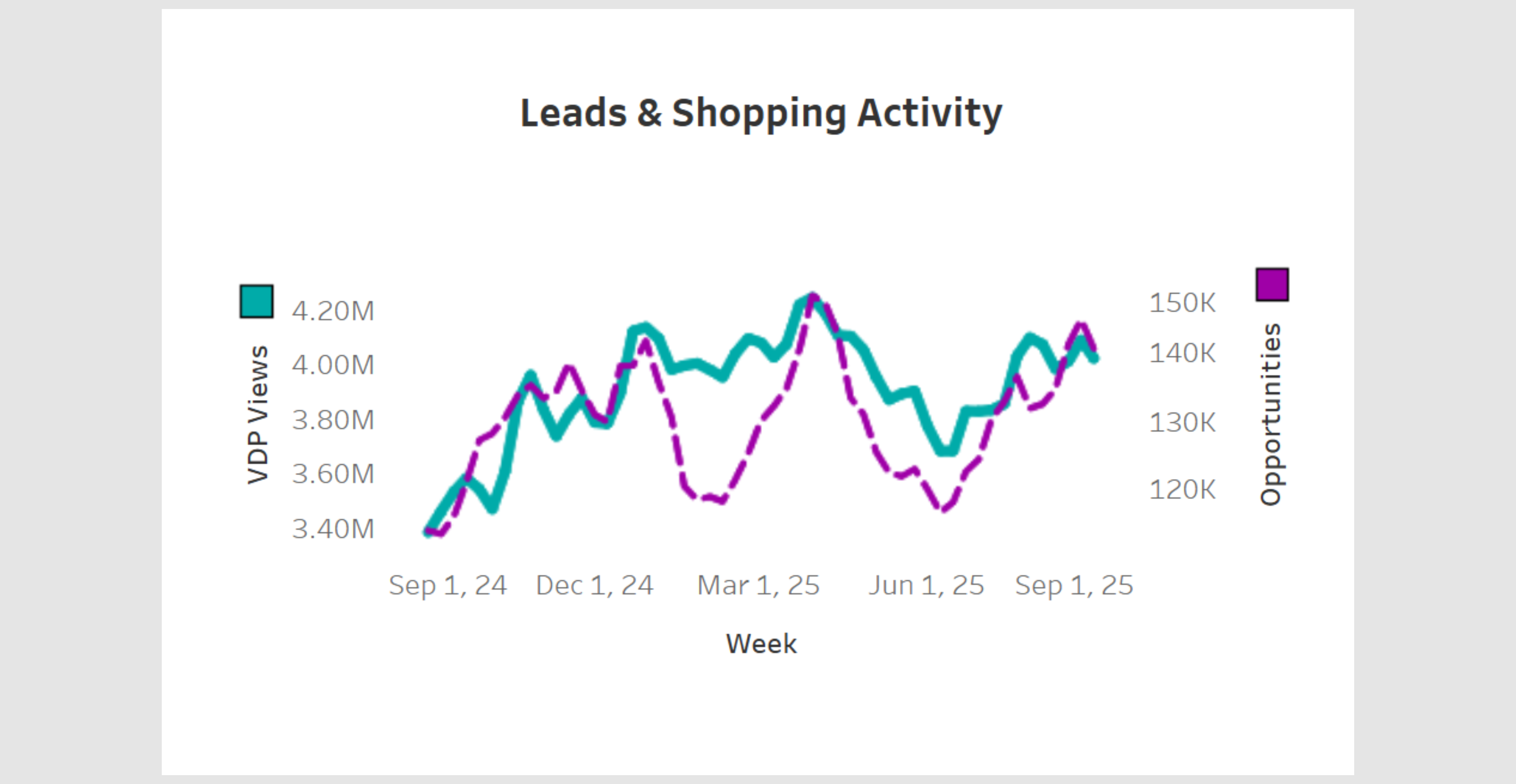Insights and news
The latest news, data studies, and ideas from the Foureyes team.
.png)
Foureyes today announced the launch of Foureyes Connect, a different kind of data platform designed to reset how dealer groups operate and scale in an increasingly complex automotive retail landscape.
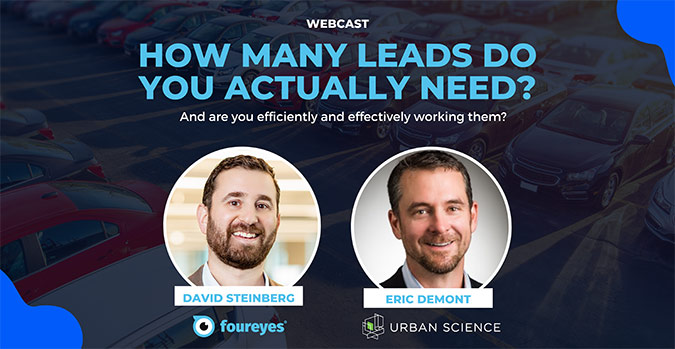 How many leads do you actually need? And are you efficiently and effectively working them?
How many leads do you actually need? And are you efficiently and effectively working them?Which dials need to be turned, and how far, to ensure they are getting leads for inventory that actually need leads? And to ensure those leads efficiently and effectively worked?
 Data Study: The Leads You Marked as Lost Are Still Shopping
Data Study: The Leads You Marked as Lost Are Still ShoppingNew Foureyes data shows why “closed-lost” doesn’t mean game over – and how dealers can win more with what they already have.
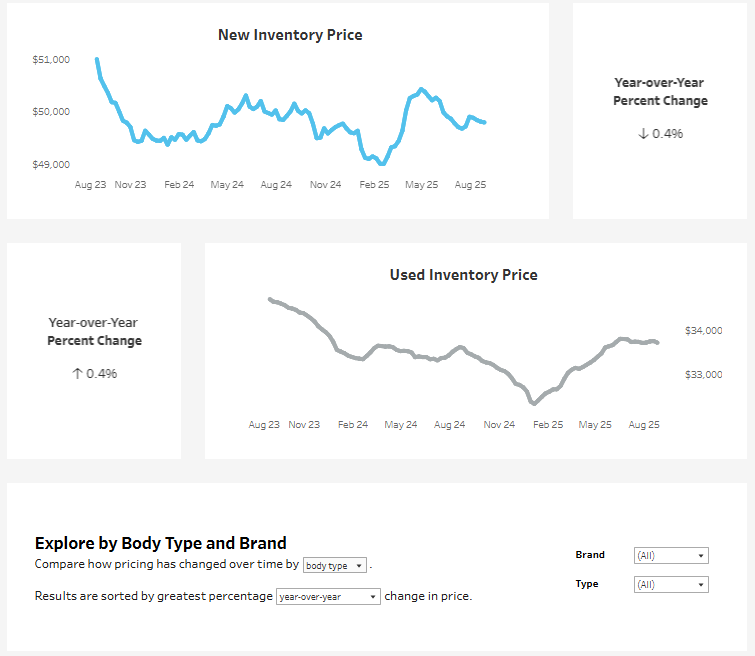 How to Use the U.S. Auto Prices Over Time Dashboard
How to Use the U.S. Auto Prices Over Time DashboardExplore weekly U.S. auto pricing trends with Foureyes’ interactive dashboard. Compare new and used prices by brand and body type, track inflation and tariff impacts, and uncover insights to guide smarter decisions.
 How to Use the U.S. Automotive Inventory Over Time Dashboard
How to Use the U.S. Automotive Inventory Over Time DashboardTrack how U.S. auto inventory has changed since 2021 with this interactive dashboard. from Foureyes. Compare new vs. used, explore brand and model shifts, and gain insights to guide smarter pricing, stocking, and forecasting decisions on a weekly basis.
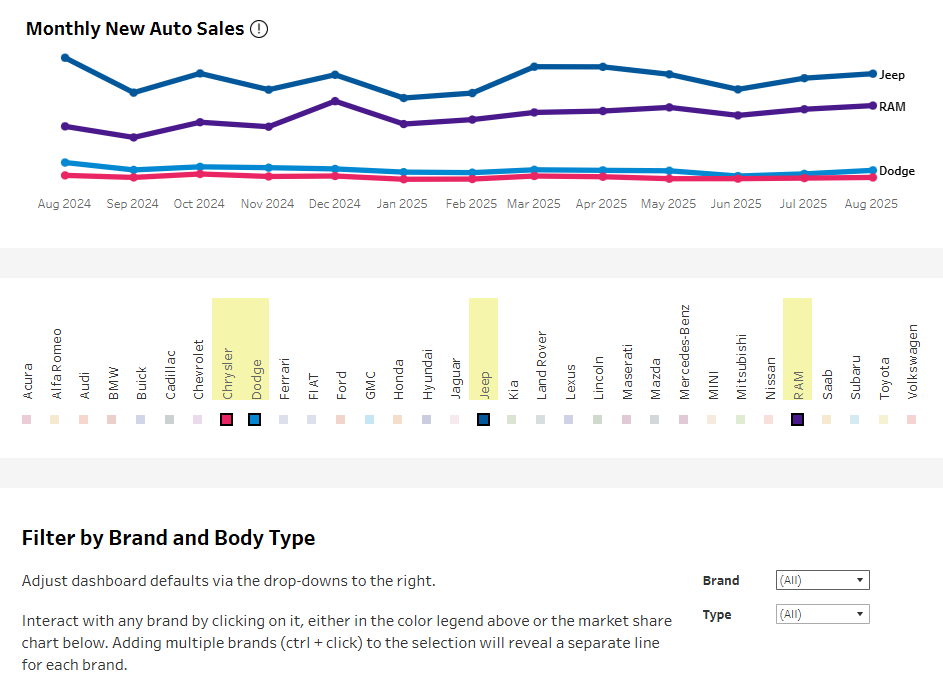 How to Use the U.S. Automotive New Vehicle Sales and Market Share Dashboard
How to Use the U.S. Automotive New Vehicle Sales and Market Share DashboardTrack monthly U.S. new vehicle sales and market share with this interactive dashboard from Foureyes. Compare brands, body types, and regions to uncover sales momentum, competitive shifts, and supply dynamics—updated monthly and available for free.
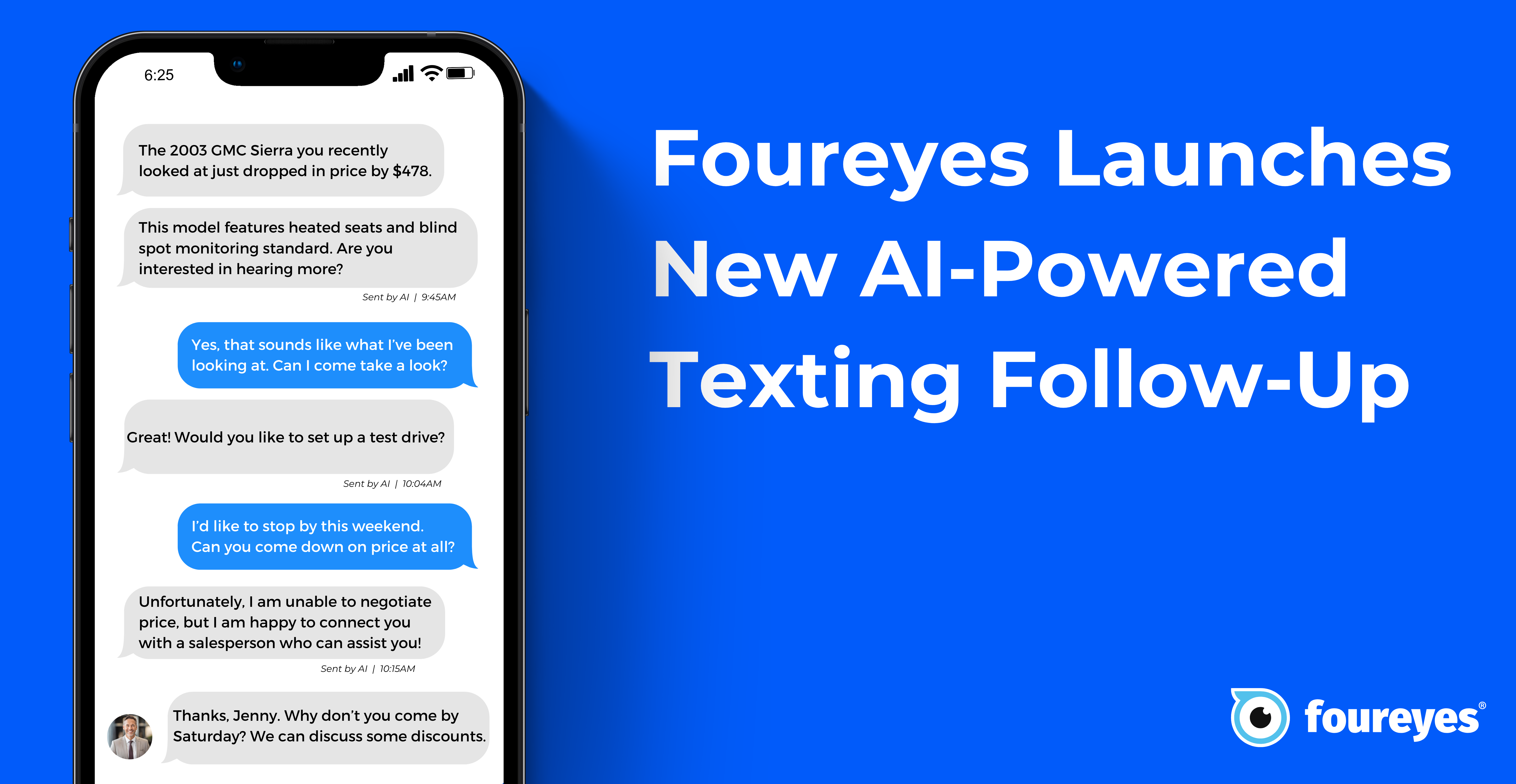 Foureyes Changing the Follow-up Game with Inventory-based Texting
Foureyes Changing the Follow-up Game with Inventory-based TextingSee how the latest Foureyes innovation further helps dealerships match prospects to specific inventory.




